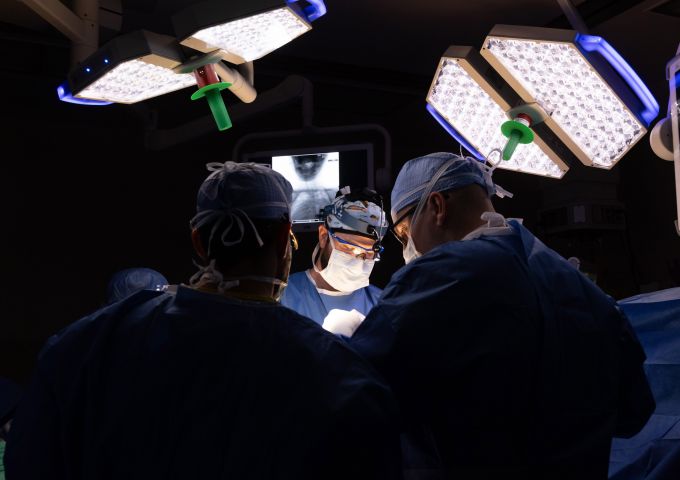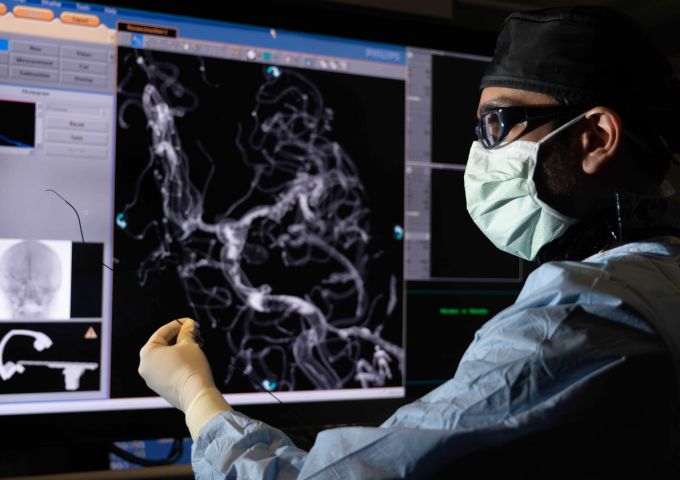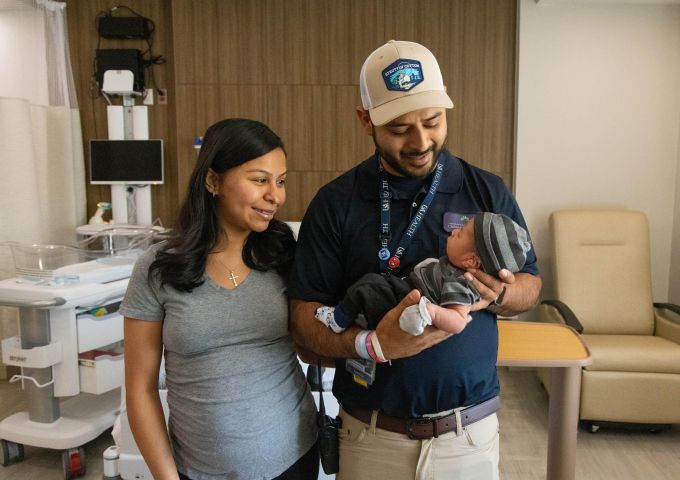
Rene Sprague, R.N., noticed a gap in the care of women facing high-risk pregnancies. See how USA Health changed that.
Imagine sitting down with an expectant mom as she finds out the baby she’s carrying in her womb has a lethal fetal diagnosis.
That’s something Rene Sprague, R.N., has done more times than she can count. She’s a maternal-fetal medicine nurse at USA Health who works with parents undergoing high-risk pregnancies. She also helped create the Bridge Program.
The Bridge Program came about because Sprague and others recognized a gap in the care and support of families who were facing a challenging pregnancy. Typically, families in this situation are given the news about their baby’s diagnosis along with a little bit of education. But news of a high-risk pregnancy is just the beginning of a harrowing journey.
Sprague wanted to make sure no mom and dad had to walk that journey alone.
Through the Bridge Program, families receive the education they need on their terms, at their level and in a time frame that accounts for their state of mind, which is often shock and disbelief. With a proper understanding of the situation, they can make an educated, rather than an emotional, decision about how to proceed. But education is just one facet of the program.
People need to comprehend the implications of a serious diagnosis. But they also need compassion.
Sprague provides a hand to hold, a shoulder to cry on, and an empathetic ear to listen and help process the anger, confusion and pain.
Frequently, those in her care also need counseling. The stress and strain of a high-risk pregnancy takes a terrible toll on mom, dad and siblings. That’s why visits with a qualified therapist are available through the Bridge Program. Counseling and support help mitigate the devastating impact an infant illness or death can have on families.
In addition, there’s the consistent presence of Sprague. Traditionally, parents in this situation work with a nurse or caregiver during the pregnancy and are then handed off to someone else after delivering the baby; this despite the high likelihood that the baby could have multiple life-threatening complications. The team at USA Health recognized the value of building and maintaining a relationship of trust—a bridge. So as part of the Bridge Program, Sprague continues to work with families even after the child is born. Sometimes, that means being a part of heartbreaking conversations and decisions about organ donation. But a vast majority of the time—Sprague estimates 90 percent of cases—there is something to celebrate.
No other hospital in the region provides these kinds of services. But the innovation reflected by the Bridge Program extends far beyond the Gulf Coast region. The Bridge Program is showing other academic health centers across the country a better way to care for and work with parents facing high-risk pregnancies.
All because USA Health sees things differently. And that’s transforming medicine.






